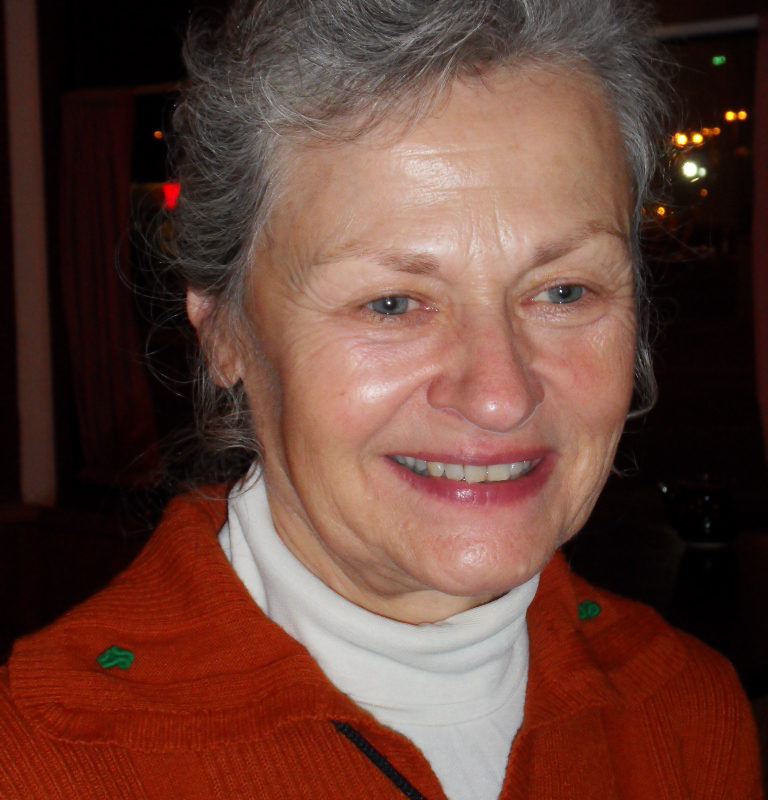
Sr. Pat Rogucki, Mary’s Pence Board Member, has been traveling in Central America for the past 26 years. She has seen firsthand the ongoing violence inflicted upon the people, land, and economies in Central America by past free trade agreements. Here she shares some of her stories, what gives her hope, and what concerns she still has.

Our Q’eqchi speaking sister parish in Guatemala told us about the negative impact of years of nickel mining in the local villages. Even before CAFTA, Canadian companies were looking for metals and minerals there. In the the past few years, the mining companies have become more aggressive, evicting these Q’eqchi communities from their lands, raping women, and killing men. There is presently a case in court to try a military officer for killing one of the villagers. A case going to trial is rare.
Bishop Ramazzini received death threats when he took the side of the indigenous against the gold mining companies in his former diocese of San Marcos. Now, he is working on similar issues in Huehuetenango.
In El Salvador, the Canadian Pacific Rim Company and U.S. subsidiaries have filed a lawsuit against this tiny nation, which is the size of Massachusetts. The Church, the people, and the government have been against the this company’s use of water-intensive cyanide ore processing in the basin of El Salvador’s largest river, the Rio Lempa.
This El Dorado Mine is located in the San Isidro region of the department of Cabanas. I have been there several times to hear the people of ADES explain the many negative envrionmental impacts of the mining efforts. Marcelo Rivera, a teacher, was the first to lose his life for this cause. He was kidnapped, tortured, and his body was found in an old well. Others were shot and killed.
The government finally voted for the company to suspend further mining efforts. Since the shareholders could not be paid, the company is suing El Salvador for millions in court. The laws of these trade agreements take precedence over a nation’s laws, even those that protect its environment.
A farming issue in El Salvador has been the use of genetically modified seeds. Monsanto owns the seeds, and farmers have to buy new ones for each planting season. If they should blow onto a neighboring farm, that owner can be sued. A small group of farmers began their own seed business. Last year, the U.S. was willing to give the Millennium funds to the government only if the farmers allowed foreign companies like Monsanto to have a stake in their business. Overwhelming support came from outside solidarity groups and that effort was defeated — a big victory for the small farming business!
Honduras is the poorest of the Central American countries. There are 21 Lempiras — the local currency — to the U.S. dollar. It is also the Murder Capital of the World. In the capital, Tegucigalpa, many big U.S. food corporations sell pizza, hamburgers, sandwiches, and fried chicken. Other corporations include U.S. hotel chains and gas stations.
The women business owners in Tegucigalpa who participate in our ESPERA Program have told me about the dangers they face when they go to the local market to buy fruits or vegetables. They are often threatened with a pistol or a knife. For safety, they must go to Walmart or a mall for their produce. They said that it looks nice, but in a day or two it is rotten.
The violence in all of these countries is further fueled by the drug trade which is headed north to the “big market.” It may appear that these multinationals create some jobs at the local level, but huge amounts of money and resources go to the corporations, leaving the countries altogether. Guatemala, El Salvador, and Honduras, known as the Northern Triangle, suffer in a cycle of exploitation and violence while U.S. corporations reap the profits.
For more information you can visit these sites:
http://www.maryknollogc.org/article/el-salvador-struggles-continue-around-mining
http://ecoviva.org/farmer-cooperatives-not-monsanto-supply-el-salvador-with-seed/
